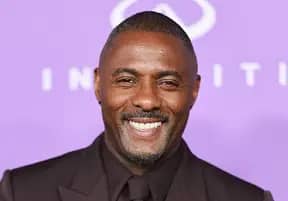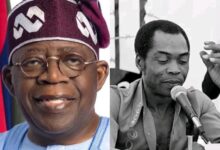Idris Elba Says He’ll Move To Africa To Boost Film Industry

British actor Idris Elba has hinted that he would relocate to Africa within the next decade in line with his plan to support the continent’s film industry.
Elba, known for playing South African anti-apartheid leader Nelson Mandela in the 2013 biopic Long Walk to Freedom, is already involved in projects to build film studios in Zanzibar, Tanzania and Accra, Ghana as part of his vision to boost local filmmaking.
Speaking on the sidelines of a film industry meeting in Accra, as reported by the BBC on Wednesday, the 52-year-old star highlighted the importance of Africans telling their own stories on the global stage.
“I would certainly consider settling down here; not even consider, it’s going to happen,” he said.
He added, “I think [I’ll move] in the next five, 10 years, God willing. I’m here to bolster the film industry – that is a 10-year process – I won’t be able to do that from overseas. I need to be in-country, on the continent.”
Elba, also known for his roles in Beasts of No Nation, Pacific Rim, and Thor, said he would not commit to living in a specific place.
“I’m going to live in Accra, I’m going to live in Freetown Sierra Leone’s capital, I’m going to live in Zanzibar. I’m going to try and go where they’re telling stories – that’s really important,” he added.
The actor further reassured that he was committed to leveraging his influence to elevate the continent’s film industry.
“I’m here to bolster the film industry—that is a 10-year process.
“I won’t be able to do that from overseas. I need to be in-country, on the continent.
“If you watch any film or anything that has got to do with Africa, all you’re going to see is trauma, how we were slaves, how we were colonised, how it’s just war and when you come to Africa, you will realise that it’s not true.
“So, it’s really important that we own those stories of our tradition, of our culture, of our languages, of the differences between one language and another. The world doesn’t know that”, he stated.
He dreams of shooting films in his Accra studio one day, showcasing the potential of locally produced stories.
“We have to invest in our storytelling because when you see me, you see a little version of yourself, and that encourages us,” he said.






